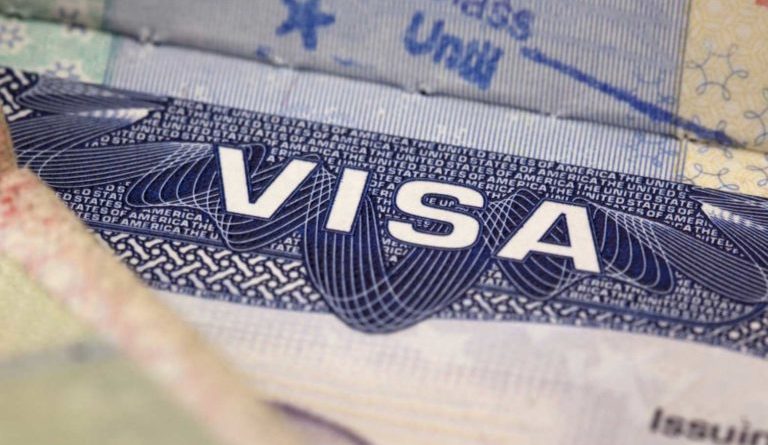OPINION-US VISA | IMMIGRATION CORNER- Common immigration scams

Many people, both inside and outside the US, are desperate to achieve the “American dream,” which means a better life for themselves and their children. Other people in the US have been out of status for many years, separated from their family back home and dream of the day they can be reunited once again in the US.
Out of desperation, they may trust anyone who claims to have answers and solutions to their immigration problems. I have come across many cases where immigration consultants or notarios make many promises and guarantees, and people put down their hard-earned money, only to find out they have been cheated and their situation has been made even worse by these immigration scams.
The US Citizenship and Immigration Services (USCIS) has posted on its website several common immigration scams that you should be aware of so you are not taken advantage of in your quest to achieve the American dream. Some scams include:
Job offer scams. There are companies that advertise in overseas newspapers and on other social media, offering a job in the US and they will be your petitioner/sponsor. USCIS warns that this may be a scam, especially if you are asked to pay money in order to receive the job offer. Rather than relying on a company’s promises, check them out to make sure they are legitimate. I’ve come across many cases where a person paid for the privilege of being sponsored, but when they arrived in the US, there was no job. Moreover, even if the job is legitimate, you’re not allowed to work in the US unless you have a green card, work authorization or an employment-related visa that allows you to work for a particular employer, such as an H-1B. Therefore, just because a company is petitioning you, you may not be allowed to work right away.
Social media and website scams. Some fraudsters send emails, text messages or have websites impersonating or claiming to be affiliated with USCIS and trick you into applying for immigration benefits and, more importantly, spending your hard-earned money, most likely for an immigration benefit you’re not entitled to. I have seen many websites that really do look “official,” as though they are government websites. But the email address should end in “.gov” not “.com” or “.org.”
Payments by phone or email. USCIS will never ask you to transfer money to an individual. It also does not accept Western Union, MoneyGram, PayPal, Venmo or gift cards as payment for immigration fees. In addition, USCIS will never ask you to pay fees to a person over the phone or by email. You can pay some immigration fees online, but only if you pay though your USCIS online account and Pay.gov.
Paying money for connections or jumping the line. Sometimes businesses and websites pretend to be immigration experts or say they have special connections to the government. They might also “guarantee” that you can get a visa, green card or work permit faster if you pay a fee. Only USCIS and/or the US embassy can determine whether to expedite processing. And there must be a compelling and urgent reason to expedite, such as an elderly or sickly petitioner, etc. Also, be aware that even if a petition is expedited, you cannot receive your green card until the priority date is current, per the monthly Visa bulletin.
Ghost brides and grooms. This particular ground is not mentioned on the USCIS website, but is one I have encountered, where a person is promised a “work permit,” but it is never clearly explained how the scam artist intends to obtain that work permit. People are told to sign blank forms and everything will be fine. Soon after receiving a work permit, the person receives an interview notice and are told to bring their US citizen spouse with them. What spouse? They’re still married to their Filipino spouse. How could they have a US citizen spouse? It turns out that the scam artist submitted paperwork to USCIS, making it appear the person had married a US citizen, such as a fake birth certificate for a US citizen spouse along with a fake marriage contract.
Filing for immigration benefits to which you are not entitled could constitute “fraud,” possibly making you ineligible for future, legitimate immigration benefits, as USCIS will still have records of your fraudulent filings. For example, if you filed a ghost bride or groom petition and are now being petitioned by a real US citizen, the fraud may come back to haunt you. In many cases, it could be argued that rather than having committed fraud, the person was a victim of fraud.
Before applying for any immigration benefit that sounds too good to be true, I would recommend you consult with an immigration attorney, who can evaluate whether the company or immigration benefit is legitimate and whether you are eligible.
* * *
WEBSITE: www.gurfinkel.com
Follow us on Facebook.com/GurfinkelLaw, YouTube: US Immigration TV and Instagram.com/gurfinkellaw
Four offices to serve you: Los Angeles; San Francisco; New York: Toll free number: 1-866-GURFINKEL (1-866-487-3465); Philippines: +632 88940258 or +632 88940239

@[email protected]


 Memento Maxima Digital Marketing
Memento Maxima Digital Marketing






